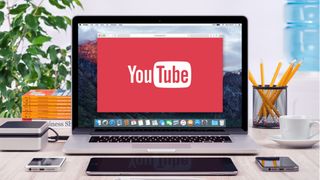YouTube and game downloads add to growing list of throttled services
Google and Sony make changes to save bandwidth

In light of the unprecedented number of people that are now either working from home or self-isolated in other ways due to Covid-19, companies responsible for various major online services have had to adapt to the increased demand.
Netflix has already acted by reducing the bitrate of its streaming content, and now Google, Sony and Microsoft have joined in by limiting the impact that their YouTube, PlayStation and Xbox services respectively have on congestion and overall bandwidth usage.
YouTube throttling
For Google, the company is making its YouTube video platform default to the 480p picture quality setting globally, just a few days after it enacted the change in Europe. This means that anyone accessing a YouTube video going forward will have it automatically set to the standard definition setting (480p), but they’ll be able to adjust it back to a higher setting if they want.
The change is being rolled out globally over the coming days so may not be in place for every user at this stage, but it’s expected to last for at least 30 days. It’s worth noting that this period could well be extended as the situation develops.
While, theoretically, everyone could simply revert to the highest available resolution every time they watch a video, the rationale is that many videos (such as those viewed on smartphones, for instance) don’t require a high-resolution stream to get the most out of them, and many users won’t notice the difference.
Sony and other gaming companies
As for Sony’s part in all this, a post on its PlayStation blog has outlined that the company will be throttling the speed at which players can download games in Europe, but assures the community that online gameplay isn’t being impacted.
Specifically, Sony has said that gamers might experience “somewhat slower or delayed game downloads but will still enjoy robust gameplay” in order to “address internet stability concerns”.
Get daily insight, inspiration and deals in your inbox
Get the hottest deals available in your inbox plus news, reviews, opinion, analysis and more from the TechRadar team.
As pointed out by major US content delivery service Akamai in a blog post, “a software update for a modern game generates an amount of traffic roughly equal to 30,000 web pages”.
As such, the company is talking to the video game industry’s leading distributors of software, including both Microsoft and Sony, to see if they can help manage internet congestion during peak times.
Microsoft’s current statement does mention that the company will be “actively monitoring performance and usage trends to ensure [it’s] optimizing the service”, but there isn’t currently any measure in place.
At this stage there’s no official word from other companies that distribute gaming software, such as Nintendo, Valve or Epic Games, on whether measures will be introduced, but we’ll likely find out over the coming days and weeks.

